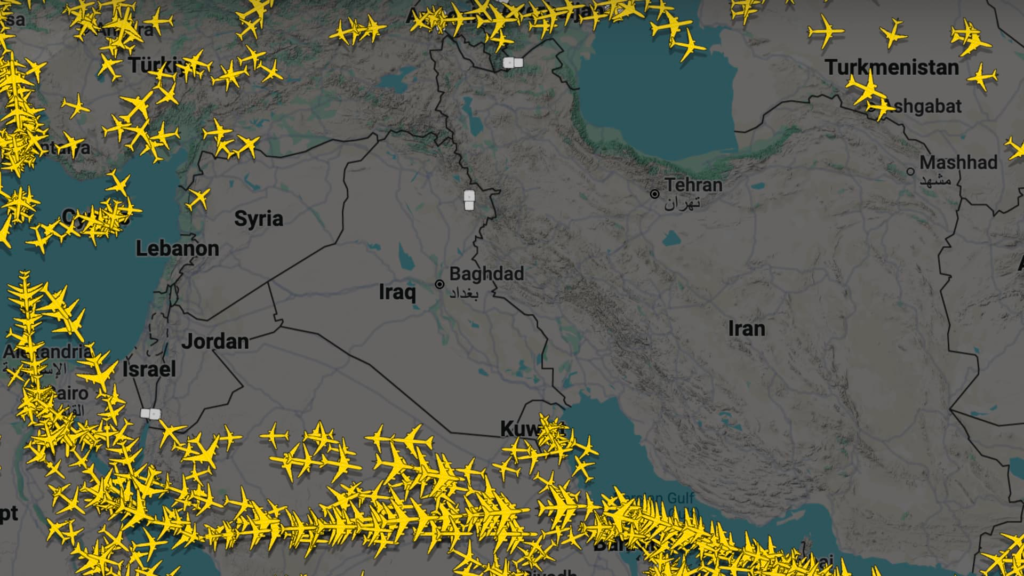A flight map shows the airspace over the Middle East as Iran launches counterattacks against Israel at 19:19 UTC on June 13, 2025.
Source: FlightRadar24
Due to a rise in tensions following Israel’s missile attacks on Iran, airlines worldwide have begun canceling flights to Israel and avoiding much of the Middle Eastern airspace.
Delta Air Lines announced on Friday afternoon that it would halt its flights to Tel Aviv, Israel, until at least September. This follows a recent resumption of service on May 20, and Delta had previously planned to ramp up its flights from New York to two daily nonstop services due to strong demand expected in winter.
United Airlines has paused its flights to Tel Aviv until July 31, emphasizing that the safety of its passengers and crew remains its highest priority as it reassesses when to resume services.
After Israel’s attacks overnight, flights from both airlines heading to Tel Aviv were redirected back to the New York area over the Atlantic. United Airlines arranged for 26 crew members who were on layover in Israel to fly back to the U.S. on the Israeli airline El Al.
El Al has also stopped all flights.
“In light of recent security updates and directives from state security and aviation authorities regarding the closure of Israeli airspace, all EL AL and Sundor flights are currently suspended,” the company stated on its website.
El Al indicated it would not accept new bookings until at least the end of June, advising travelers to avoid going to Tel Aviv’s Ben Gurion Airport.
“For those currently overseas, we suggest finding accommodation until security conditions improve,” El Al advised. “Flights already en route to Israel have been diverted to other EL AL destinations.”
On June 13, 2025, Israel closed its airspace and halted flight operations at Ben Gurion International Airport in Tel Aviv.
Nir Keidar | Anadolu | Getty Images
Other airlines such as Turkish Airlines and Wizz Air have also stopped their flights to Israel. Germany’s Lufthansa announced it would halt service to Tel Aviv and Tehran until July 31 and suspend flights to Jordan and Lebanon at least until June 20. Emirates declared a cancellation of flights from its hub in Dubai to Iraq, Jordan, Lebanon, and Iran.
In light of the travel disruptions, airlines have begun offering travel vouchers and waived change fees to affected customers.
Increasing military conflicts in the Middle East and Ukraine have compelled airlines to take longer, more expensive routes to avoid areas of conflict.


